‘Lukashenka’s Own Henchmen Will Remove Him In Order To Stay In The Game’
15- 26.12.2023, 13:20
- 45,852
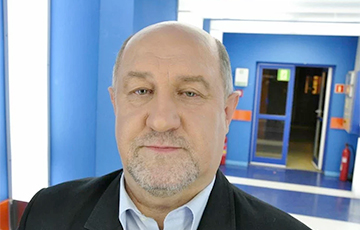
PHOTO: BELSAT
The Kremlin will have neither time nor energy for Belarus.
Politician Dzmitry Bandarenka rarely appears in the media space, he is not on social media, writes Nasha Niva. Meanwhile, since the mid-1990s, he was among active opposition figures, was subjected to repression and eventually emigrated. In his opinion, Belarusians did not take advantage of historical chances to change their lives, and now not everything depends on them. He believes that a revolt of Lukashenka’s nomenklatura is possible in Belarus.
Who is Dzmitry Bandarenka
Dzmitry Bandarenka is 60 years old. In 1984 he graduated from the Belarusian Institute of Physical Culture. Over the years, he coordinated the activities of Charter'97, the Zubr movement, and the European Belarus civil campaign. He was the commercial director of Radio 101.2 (1995-1996), CEO of the Independent Press Support Fund (1996-2001), and headed the election campaign of presidential candidate Andrei Sannikov in 2010. At the end of that election campaign he was thrown to prison.
In 2010-2012, Bandarenka was held in captivity on charges of “mass riots.” Since 2012, the politician has been in emigration.
Now Bandarenka is a member of the supervisory board of the European Belarus Foundation, which is registered in Warsaw.
“Until 2022, everything did depend on us”
— Mr. Dzmitry, you recently celebrated your 60th birthday. When you were young, did you think about where you would end up at that age?
— When I was a Soviet boy, I watched the movie “Lenin in Poland.” And then, when I ended up in Poland, I laughed: I probably shouldn’t have watched such movies.
But seriously, I have long realized myself as an officer of the Belarusian resistance. My life is dedicated to serving Belarus.
Until 2022, everything did depend on us. Some gave their all at key historical moments, while others thought “oh, not now, later.” Now we have what we have.
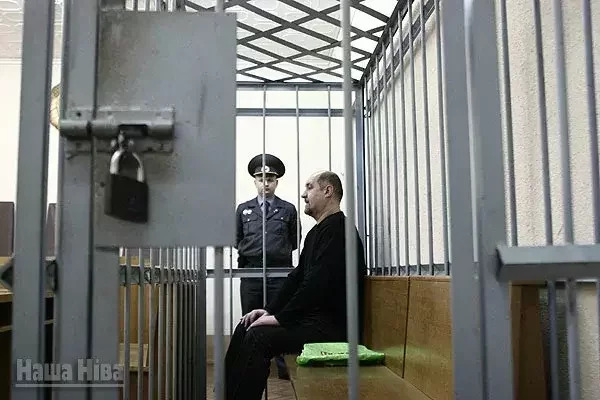
I was ready for anything. If we had won, we would have had to act in a different situation.
And today... It’s good that I’m free, that my family and partly my team are nearby. Here, there is an opportunity to do something useful for the homeland and bring closer, no matter how pretentious it may sound, the liberation of our country.
— Was, from today’s perspective, the decision to leave Belarus correct?
— I couldn’t stay in Belarus, because I would end up in prison.
And I no longer wanted to be a guinea pig in captivity, to be experimented on.
Moreover, if a person is over 50 years old, has problems with his spine and joints (Dzmitry Bandarenka had surgery in the colony and walked on crutches — “NN”), then, you know. There was also responsibility for the family, homeland, so it was better to leave. This decision was absolutely correct, there was no other option.
Perhaps I would have felt differently if part of the European Belarus team had not remained within the country at that time. We participated in the creation of the Belarusian National Congress (in 2016 — “NN”).
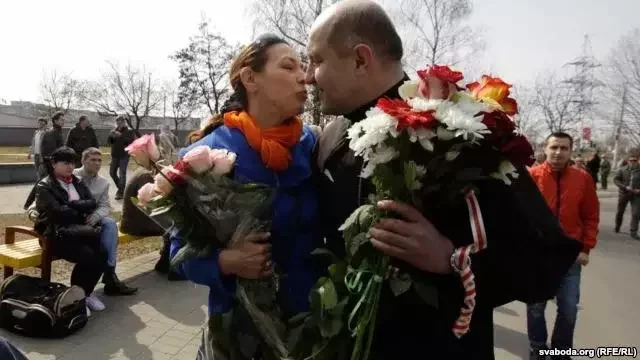
I consulted with Mikalai Statkevich. Like, in Belarus I got used to walking at the head of the column, and did I have the right to call Belarusians from abroad to protest? He answered me: you do your job there, and we do ours here — and it will give results.
The revolution of 2020 is a joint work of people who did it within the country and us who helped from abroad.
Siarhei Tsikhanouski was part of Mikalai Statkevich’s plan to attract so-called protest candidates. It was an impetus that influenced the entire situation in Belarus.
Mikalai Statkevich, Pavel Seviarynets, Yauhen Afnahel, Maksim Viniarski are real leaders and heroes of the Belarusian resistance.
“Belarusians were not ready for ultimate sacrifice”
— Could you imagine that Belarus would be engulfed in such terror as it is now? And could it have been avoided?
— Of course, Belarus could have avoided the current terror. There were windows of opportunity in 1996 and 1999. And also during the years of presidential elections: 2001, 2006, 2010, 2020.
The habit of Belarusians to postpone solving problems until tomorrow has led to the current situation. Some worked until the end, while others...
I'm not even talking about 1994. History could have gone differently if Belarusian businessmen had openly told Henadz Karpenka that they would support him, give him resources and managers.
Then Viktar Hanchar would not have ended up with Lukashenka. Lukashenka might simply not have appeared. But history only has one version.
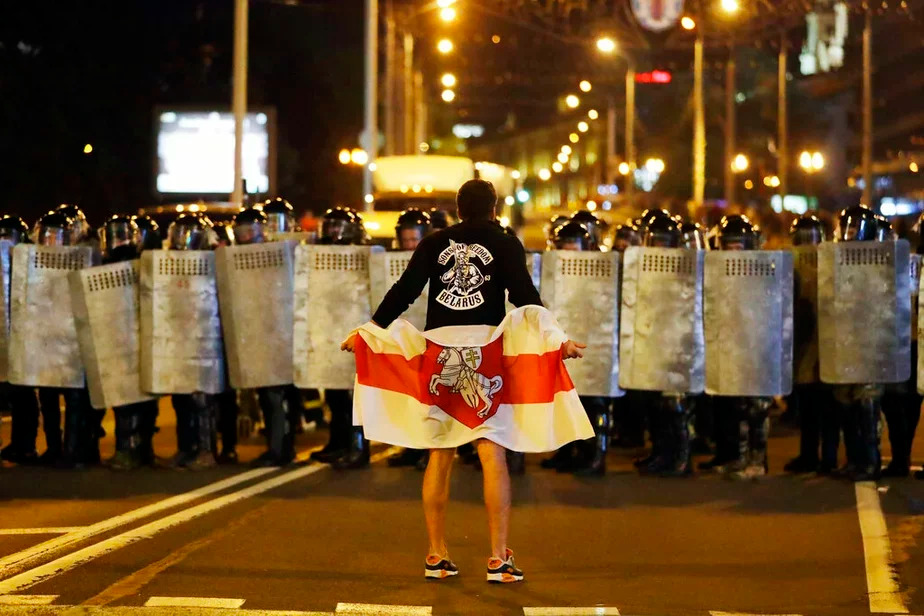
I have always believed that a change of power in Belarus could happen at any moment.
But this could happen before the 2022 war. People were not happy, Lukashenka was weak. However, we didn’t finish it together.
Belarusians fought, but were not ready for ultimate sacrifice, and freedom and independence require sacrifice.
Some national leaders, when traveling abroad, declared: help Lukashenka, remove the sanctions from the regime.
People chose well-being, personal peace, and opportunism. This has led to the endangerment of the freedom and independence of Belarus.
Now we depend on the situation in the world, but the entire civilized world is on our side, all the power of the democratic West — military, economic, financial.
The enemy, of course, is strong, however, we are on the side of the united forces of good and we will inevitably win. But our freedom no longer depends on us.
I am proud to be involved in the creation of the Charter'97 initiative, the Coordination Council of Democratic Forces — the present one, which included great figures. The parties were strong back then. I am proud of my participation in the Zubr movement, although it was a youth movement.
Now I continue my activities in the European Belarus campaign.
“You need to avoid situations where resistance exceeds your own capabilities”
— What advice would you give to current political prisoners?
— I served a prison term with one military man, a colonel, a graduate of the Russian General Staff Academy, and he said the following phrase: “Don’t think why you ended up in captivity, think about what for you are in it.”
Understanding this radically changes the perception of a prisoner’s life. This thought helped me a lot.
I would remind current political prisoners that we need them free.
We are waiting for them, their loved ones, families and, ultimately, the whole Belarus are waiting for them. They are chastened, and know what real sacrifice is.
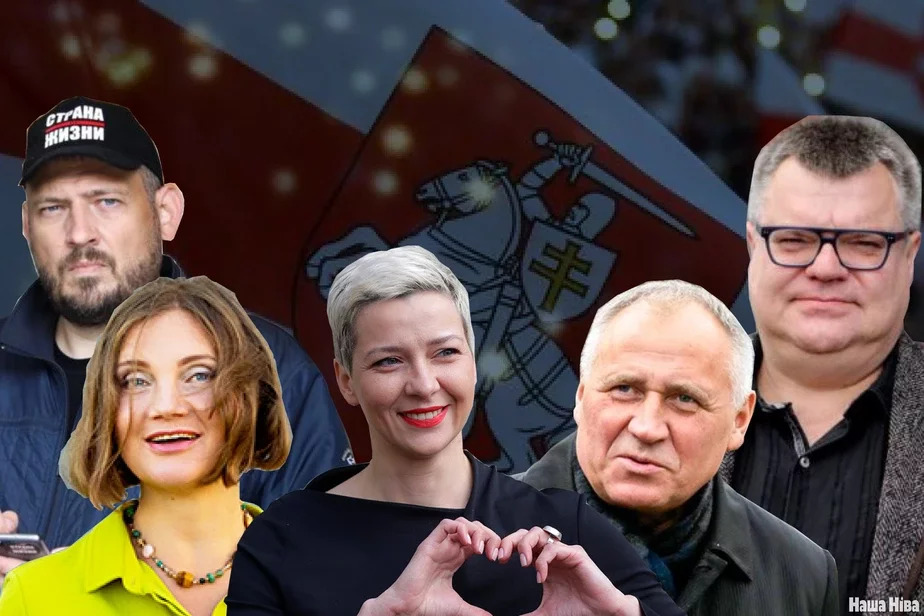
Once in the US Congress, even before the 2001 terrorist attack, one young American said that Belarusians are happy because they have the opportunity to fight for the freedom and independence of their country, and the Americans already have this.
Such thoughts helped me a lot.
Prison is a place where you gain existential experience of communicating with people. It can only be obtained there. In captivity, the value of human relationships is incredible.
There you understand that God exists. He's only by your side in prison. In the bustle of everyday life, we forget about Him.
In captivity, you need to try to remain yourself as much as possible and not give in to pressure. The best solution may be the most radical action.
Don’t forget that you are not just in prison, but in captivity. Therefore, you need to avoid situations where resistance exceeds your own capabilities.
“The reign of evil is temporary”
— How to live in Belarus, where tyranny reigns?
— Living in Belarus is bondage, but it’s better than in prison.
Some people, under conditions of tyranny, will find support in faith, while others will live with the expectation that the time will come for revenge.
The law-enforcers are having their time playing around, but they are still 3% and this number is not getting any higher.
Time and situation will change, and they will run away, flee around the world. Perhaps believing this will give someone extra strength.
Therefore, everyone needs to look for their own ways to survive in the inhuman conditions created by the gang within the country. Love your family and dear people, take care of the country.
The main thing is to find the meaning of your life. Understand that the reign of evil is temporary.
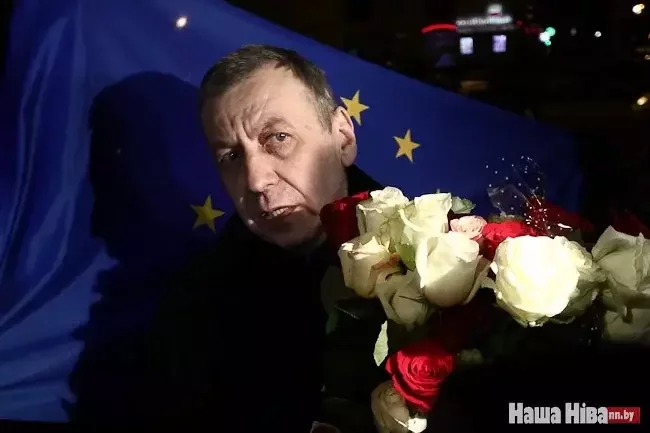
Poland, for instance, did not have independence for more than 100 years. Belarus didn’t have it for 200 years— and then found it. Now everything is happening much faster.
It's not the Soviet Union against us. The whole normal world is with us. We need to prepare for changes and to be useful to the country. We, Belarusians, will definitely implement our plans.
“It’s not easy in captivity. The Lord gives us such a test”
— Mister Dzmitry, what depressed you most in captivity?
— It was depressing, upsetting — this is uncharacteristic of me. A prison, of course, is a prison. I had to go through this.
We were also treated harshly, at least in the KGB detention center.
Andrei Sannikov generally had very strict conditions.
His wife was arrested, then she and her young son were under house arrest. The child was essentially in captivity. There were always two KGB officers in the apartment.
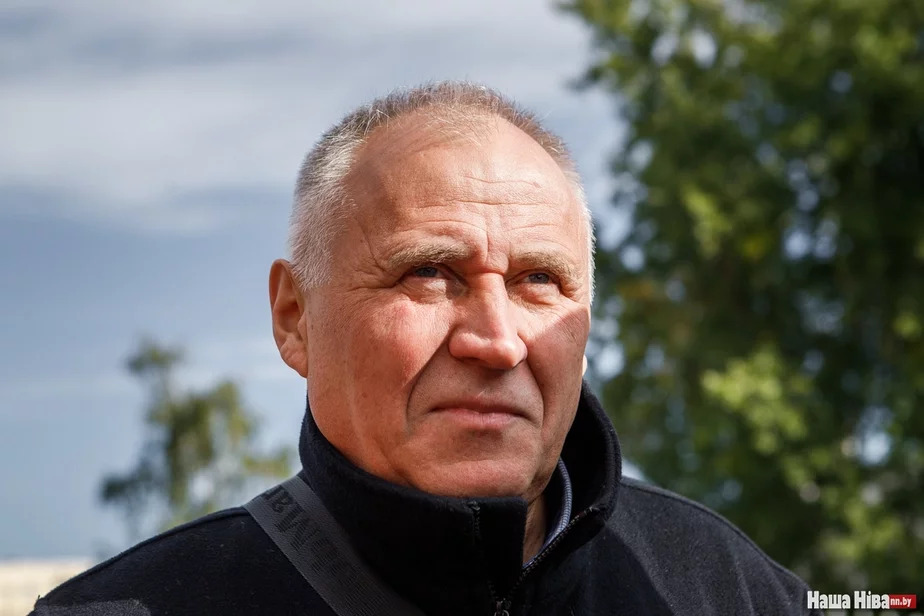
Mikalai Statkevich has been in prison for a total of more than 11 years. It is now unknown whether he is alive.
Pavel Seviarynets also served a lot of time, and he continues to be tortured behind bars.
Mikhail Khodarkovsky (Russian entrepreneur, former oligarch— “NN”), Yulia Tymoshenko (former Prime Minister of Ukraine — “NN”), Yuriy Lutsenko (former Minister of Internal Affairs and Prosecutor General of Ukraine— “NN”) went through prison.
People had power, money, influence, but the time comes and you have to go to prison and endure. This is also an experience.
The Lord gives us such a test. It's not easy in captivity. It was necessary to go through it. This is an experience. Of course, you can do without it, but...
“Part of my today’s politics is not public”
— What are you doing in Poland?
— What I did in Belarus:
information work and, one might say, political work. One might say, activities in national resistance. It includes international work.
Now there is a very large diaspora. The European Belarus campaign helps specific individuals and structures. We meet people.
But not everything can be discussed publicly.
In 2020, the European Belarus was looking for resources to help creative people and the Kupala Theater. As the war began in Ukraine, we were able to find partners and attract resources to support the Kalinouski regiment.
The Kalinovites said that the European Belarus provided them with more help than all the others combined. They exaggerated a little, but we did something for them.
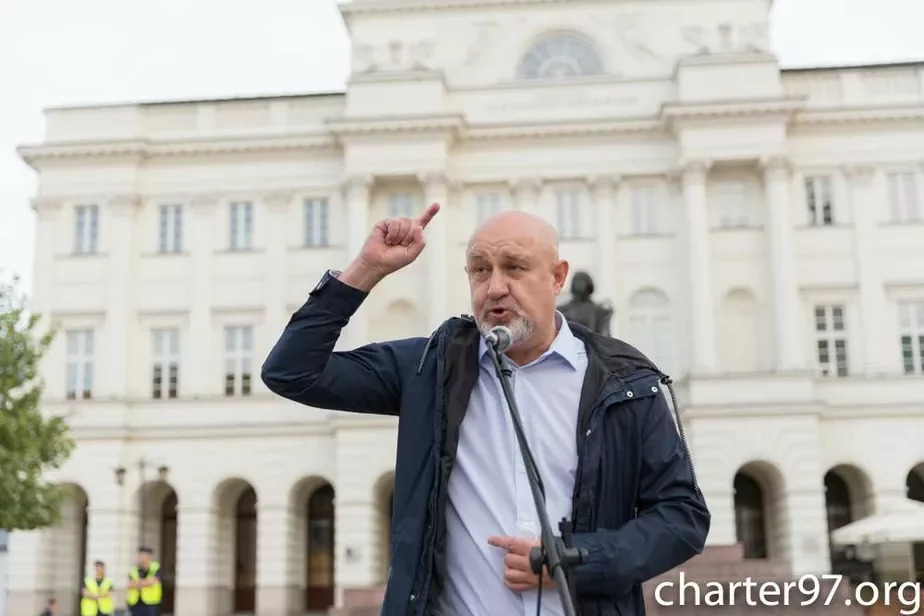
Most recently, Andrei Sannikov published a book with a selection of articles entitled “Belarus to NATO.” The book is in several languages and I think it will influence today's policy towards Belarus and its future.
I'm not on social media. I don't want to be in the spotlight.
Today, part of my politics is not public. I don't need extra fame.
— Have you gotten used to the foreign land?
— Poland is not a stranger to me. Warsaw is one of our capitals. As it was sung in the Belarusian song: “Ah, my Warsaw, ah, my capital.” The First Polish-Lithuanian Commonwealth is our joint state with Poland.
That's why I don't feel like I'm in a foreign land.
Of course, Poland is a different country, but I am a Catholic, the Polish language is similar to Belarusian and is understandable to me. There are many acquaintances and friends here. There is an opportunity to work, so I feel comfortable in Poland. Of course, Minsk is also a capital for me. And Vilnius and Kyiv, too.
“The “Latushkas of the last saint days” will appear”
— Can you imagine returning to your homeland?
— One of the options that will launch the mechanism of change in Belarus is when Russia breaks its neck in the Ukrainian war, a war against the whole world.
Economically, if we compare the gross domestic product of NATO countries and Russia, the difference is 25-30 times. The transfer of the Russian economy to a war footing will only accelerate the collapse of Russia. The longer the war continues, the more pieces it will fall apart into.
If this phase comes, then the Kremlin will have neither time nor energy for Belarus. It will be on his knees and ask the West for help — Bush's legs.
In this situation, Lukashenka’s own henchmen will remove Lukashenka.
The “Latushkas of the last saint days” will appear, who, as it turns out, fought to the last. They were under the regime for 30 years just to remove Lukashenka.
They will have to show that they carried out a coup and liberated Belarus, to stay in the game.
Maybe the GUBOPiK gang will be stronger and there will be no heroes who will eliminate Lukashenka. Then a popular uprising may occur. Belarusians will feel that this is the last fight to achieve a happy future. Then we can count on international help. Conditionally, for the deployment of UN and NATO troops.
Then it will be the time to return to Belarus.
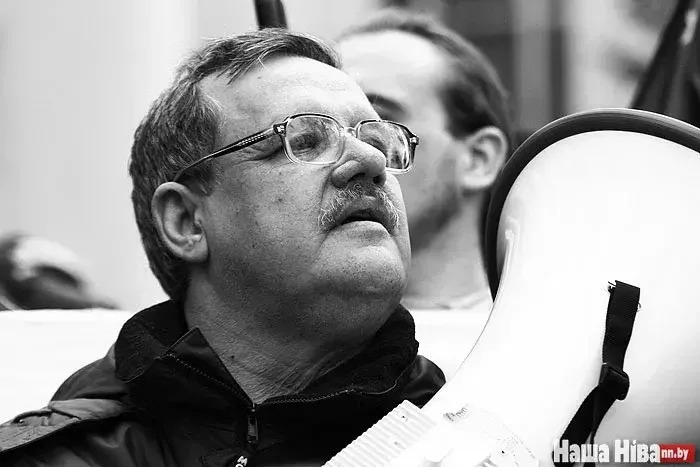
Internally, I have a desire to finish the work of those people who are not with us: Henadz Karpenka, Viktar Hanchar, Stanislau Shushkevich, Valer Shchukin, Pyotr Martsau, Pavel Zhuk.
Now we really miss a person like Viktar Ivashkevich, who thought about Belarus 24 hours a day.
We simply must complete their work and help the young people lead Belarus to Europe. For Belarus to become a normal European country, be under the NATO umbrella and be a member of the European Union.










